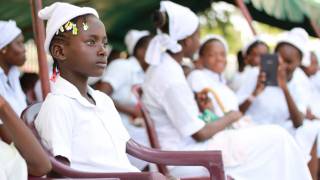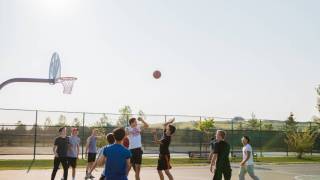Are One-Dose HPV Vaccinations Becoming the New Normal?

The U.K.’s Joint Committee on Vaccination and Immunisation (JCVI) has been considering a potential move to authorize just one dose of the HPV vaccine for several years.
Indeed, the JCVI was aware of the potential for one dose as far back as 2018.
The committee agreed in February 2022 that there is now enough clinical evidence to advise a change in the schedule from two doses of 4-valent HPV vaccine to one dose in the routine adolescent program for those up to 14 years of age.
Two longstanding clinical trials have contributed valuable data with post hoc analyses of non-randomized data on the potential of one dose, the Costa Rica Vaccine Trial (bivalent vaccine) and the IARC Indian trial (quadrivalent vaccine).
These studies have published endpoints followed up to 10 years and have shown persistence of antibody and efficacy over time.
Then, in December 2021, the JCVI reviewed additional data presented from other studies.
Furthermore, the move to the 9-valent vaccine is due to commence in 2022.
The 9-valent HPV vaccine is JCVI’s preferred vaccine for the program because of the additional protection that is provided against the five additional cancer-causing HPV types.
The 9-valent HPV vaccine should offer protection against about 90% of the cervical cancers caused by the HPV high-risk types.
This is an increase of cervical cancers that the bivalent (70%) and quadrivalent (80%) vaccines protect against.
The JCVI says a single-dose schedule should free up resources that can be deployed to further strengthen the adolescent immunization programs in the U.K.
Furthermore, some of the resources made available due to the reduction in vaccination sessions should be re-directed to interventions that strengthen program delivery, increase coverage rates and reduce inequalities.
Current efforts are focused on the ongoing catch-up of those adolescents who have missed their first or second dose due to the interruptions to the schools’ immunization program due to the pandemic.
As with all vaccine programs, a one-dose HPV program will be closely monitored through surveillance and kept under review by the committee with the option of adjusting the program if new data emerges or if new vaccines or technologies become available that could further strengthen protection against HPV infection and the consequent cancers.
This change contrasts with the U.S. CDC’s recently updated HPV vaccination schedule for 2022.
The CDC continues to recommend two HPV vaccine doses for most adolescents, and three doses for other people.
However, the CDC and the JCVI are aligned on preferring the 9-valent HPV vaccine’s extended cancer-prevention capabilities.
In the U.S., the Gardasil 9 vaccine is the CDC’s recommended HPV vaccine.
Additional HPV vaccine news is published here.
PrecisionVaccinations publishes fact-checked, research-based antibody, antiviral, and vaccine news.
Our Trust Standards: Medical Advisory Committee
























